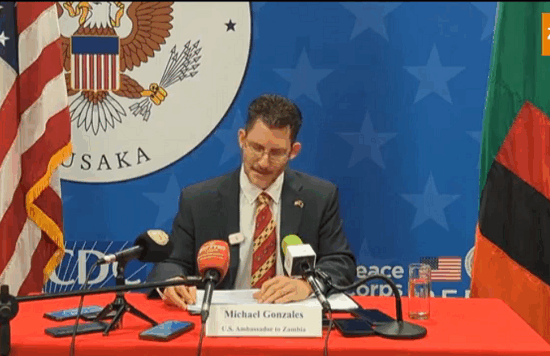
The new dawn government has denied accusations that they have gone against the spirit of local empowerment by depositing a bigger share of the increased constituency development funds – CDF allocation with foreign owned banks at the expense of locally owned banks and local financial institutions.
The new dawn government has been accused of giving or depositing the majority share of the CDF funds with foreign owned banks and financial institutions when the expectation was that these funds should be held and administered by locally owned financial institutions that are based in the respective constituencies so that all areas would eventually have access to financial services in the medium term using this devolved Fund.
Permanent Secretary (PS) – Administration in the Ministry of Local government, Maambo Haamaundu has stated that the CDF funds which have so far been released but not disbursed are held in various commercial banks and not only foreign owned banks.
“There is no bank that does not hold an account for CDF. There is no bank that can say that they don’t have any account for the constituency development funds”, stated Hamaundu. When asked to state which local banks or micro finance deposit taking institutions that have gotten a share, he confirmed that ZANACO, NATSAVE and INDO Zambia are among the banks with local shareholding among others that have gotten the CDF deposits.
In an exclusive interview with the Zambian Business Times – ZBT, the Local Government PS stated that majority banks that are holding CDF funds are banks you can consider indigenous [or with significant local ownership]. This is despite impeccable sources that have indicated that foreign owned banks have gotten a lions share of these funds despite not having presence in most rural constituencies.
ZANACO for an instance which the government has a significant shareholding and Indo Zambia bank which is a collaboration between the government of the republic of Zambia and central bank of India are banks that we can point at that have gotten CDF funds deposits.
Haamaundu told ZBT that the sensitization that is being done on the constituency development funds is an ongoing thing, but with questions still being asked is an intel that people have not yet gotten what the CDF really is and where is it coming from.
He further added that CDF has been in existent from as early as 1995 and money was being disbursed through established channels. He said that the only difference is the expansion or scope of CDF [which has increased from about K1.6 billion to about K26 billion per year]. Government is now encouraging locals to make decisions on how the funds must be utilized as opposed to all decisions being made centrally.
Hamaundu further told ZBT that government also intends to promote entrepreneur activities in different constituencies, the secretariat was given a directive to give preference to the people that reside in particular constituency to perform duties that are available for the CDF within the constituency.
The PS has since urged people from different constituencies to take advantage of the new inclusions so as to build their community in a manner they want it to be built and in the process also build their financial muscles and local businesses.
There are widespread concerns that the CDF funds are still being held by the usual foreign owned banks at the expense of local financial institutions that could have been used by government to administer these funds, in the process increasing their capacity.
Some local financial institutions and lenders who have established themselves in rural constituencies even before CDF serving these rural and hinterlands have overlooked when it comes to selecting financial institutions to deposit and administer the funds.
The questions then is how these rural constituencies will ever develop to have fully fledged local financial institutions or service provider if capacity is not built using this revolution of government services. Calls have been made to urging government and then local government ministry that funds should also deposited in financial institutions that have established presence in respective constituencies.







